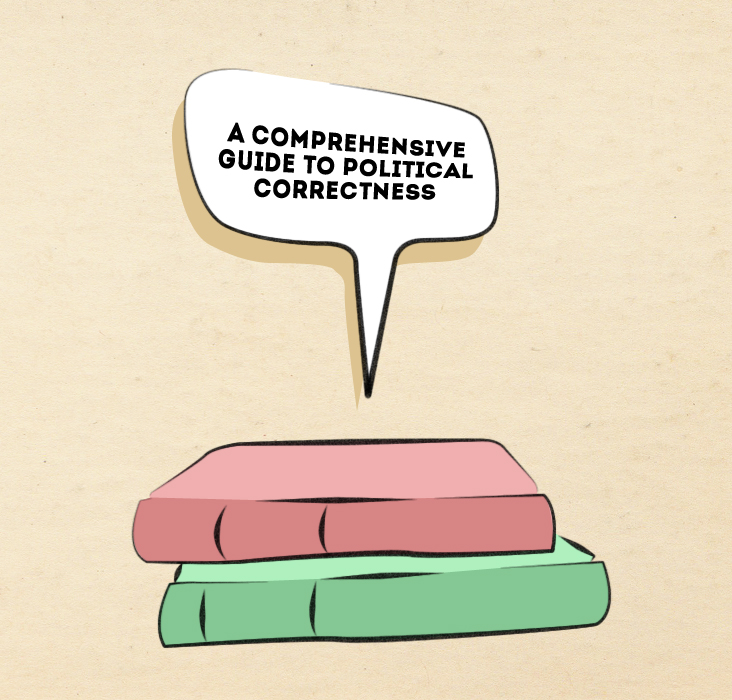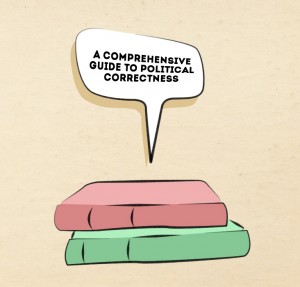Dimensions of correctness

Is an ‘overload’ of political correctness really pushing society overboard?

There has been a lot said about political correctness this year. It follows a fairly predictable pattern: famous person says something and controversy ensues, which naturally leads to a discussion about “pc culture.” It did not begin this year, nor would it end this year.
Like many topics, it is churned out frequently and is incredibly divisive.
There seem to be two major viewpoints regarding political correctness. The first category chalks it up as much ado about nothing, merely people whining that they are not free to say offensive things as much as they could in the past. The second category views it as a real issue, one that threatens free speech as we know it and leads to needless coddling of the current generation.
Divisiveness notwithstanding, these views are dynamic to a degree. People might stand on each side depending on their identity, political views, personality and overall sensitivity. There are also those who straddle both views and reach conclusions on a case-by-case basis. Someone on one side might suddenly agree with the other viewpoint, an epiphany of sorts.
Offenseiveness plays a major role in much of the dialogue surrounding political correctness; the fear of offending someone or the feeling of being offended by someone’s words or actions. This is also a topic of some debate — does it truly matter if someone is offended by something we say? Do we have a responsibility not to offend others?
Whichever way one might feel about both questions, there is a reason why euphemisms exist. There does appear to be an expectation of courtesy and common human decency for our neighbors, but even these expectations can be murky. Who are our neighbours and how far must this courtesy be extended? Questions that become harder to answer in this progressively globalized world.
The existence of euphemisms further stresses that language does not exist in a vacuum. There has been an inextricable link between language and oppression throughout history. Conversely, language evolves with social change, either trailing or leading it. Ergo, greater importance is attached to language, one that goes beyond offense to possible socio-historical reasons behind it.
The general population is aware of this. People shy away from taboo words and subjects in public. Nonetheless, rapid social change adds another dimension. There are those who may not support the specific change and therefore will not want to alter their language, while others simply do not know when or why seemingly regular words, sometimes even euphemisms, become contentious.
The “euphemism treadmill” is a product of this added dimension. It is a term coined by Steven Pinker that refers to the ways in which euphemisms develop negative connotations over time and are replaced by other euphemisms that could, in turn, become taboo. One example is the chronological change from “the blind” to “people with blindness” and “visually challenged” as the “correct” terms.
However the correctness of such terms are rarely reasonably unanimous. In 1993, for instance, the National Federation of the Blind referred to some of them as “being totally unacceptable and deserving only ridicule because of their strained and ludicrous attempt to avoid such straightforward, respectable words as blind.” But many of these terms were initially proposed by advocacy groups. What rules, then, must the general population follow?
Disenfranchised groups face such conflicts. Some accept these evolving terms as necessary progress, others view them as separatist and contrary to the goal of equality. The lack of clear consensus, coupled with the tediousness of monitoring linguistic changes, typically makes this more than a simple case of one side versus the other. Moreover, there are real life implications.
Potential backlash is arguably the impetus to the fear of offending a particular group. Largely dependent on context, it could taint or end a career and a reputation. People are increasingly careful about what they say to avoid this dreaded backlash. They are fervently asking: “has political correctness finally reached its tipping point?”
But the situation is not nearly as grave. Backlash might often be loud and ample, but that is usually attributed to the nature of the Internet and media sensationalism.
It is not always representative of those groups that might be offended and is rarely as destructive as some of the extreme cases we are bombarded with.
There are demonstrable benefits and issues associated with political correctness. Abundant questions, but few resolutions. People will continue to say things and controversies will continue to follow. The sky has been falling for the past couple of years, yet the cycle somehow persists.


